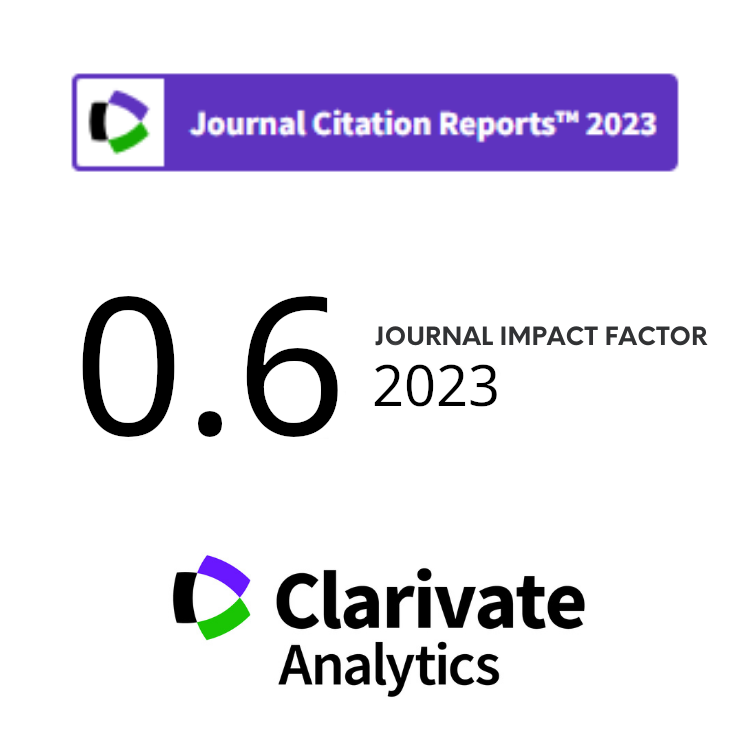Molecular and in silico Study of TP53 Codon 72 Polymorphism (rs1042522) in a Population Exposed to High Background Radiation in Mamuju-West Sulawesi
Abstract
The evaluation of the tumor protein p53 (TP53) codon 72 polymorphism (rs1042522) status in a population exposed to high background radiation was performed in this study. Real-time polymerase chain reaction (Q-PCR) was used to genotype the rs1042522 polymorphism in 100 subjects from Takandeang, Salleto, and Ahu villages in Mamuju district, West Sulawesi. An in silico study was then conducted to identify the potential effects of the proline substitution associated with this polymorphism on protein stability. The in silico analysis was performed using three different computational tools, namely I-Mutant Suite, iStable, and Protein Variation Effect Analyzer (PROVEAN). Secondary and three-dimensional (3D) structural models for wild-type (WT) and variant TP53 were generated to predict potential structural changes in the protein. Electrostatic surface charge calculations were also performed to identify changes in the electrostatic charge of codon 72. The Pro72 and Arg72 frequencies among the inhabitants in the Takandeang, Salleto, and Ahu villages, who are Mandarese Austronesian-speaking ethnic group members, were 0.56 and 0.44, respectively. The in silico analysis revealed no negative effects on protein stability due to the proline substitution at codon 72, although molecular modeling showed several differences in the secondary and 3D structures of the TP53 variant compared with the structure of WT TP53. To determine the impact of the proline-coding allele on individual sensitivity to radiation exposure, we compared the micronucleus (MN) frequencies of each genotype. The results showed that the MN frequencies in individuals harboring the proline-coding allele were not significantly higher than those expressing the arginine-coding allele. In conclusion, this study revealed that the proline-coding allele for codon 72 of the TP53 gene represented the predominant genotype among Takandeang, Salleto, and Ahu villages inhabitants. The present study also demonstrated that individuals who carried the proline-coding allele were not more sensitive to radiation compared with those expressing the arginine-coding allele for codon 72 of the TP53 gene.
Keywords
Full Text:
PDFDOI: https://doi.org/10.17146/aij.2020.984
Copyright (c) 2020 Atom Indonesia

This work is licensed under a Creative Commons Attribution-NonCommercial-ShareAlike 4.0 International License.











